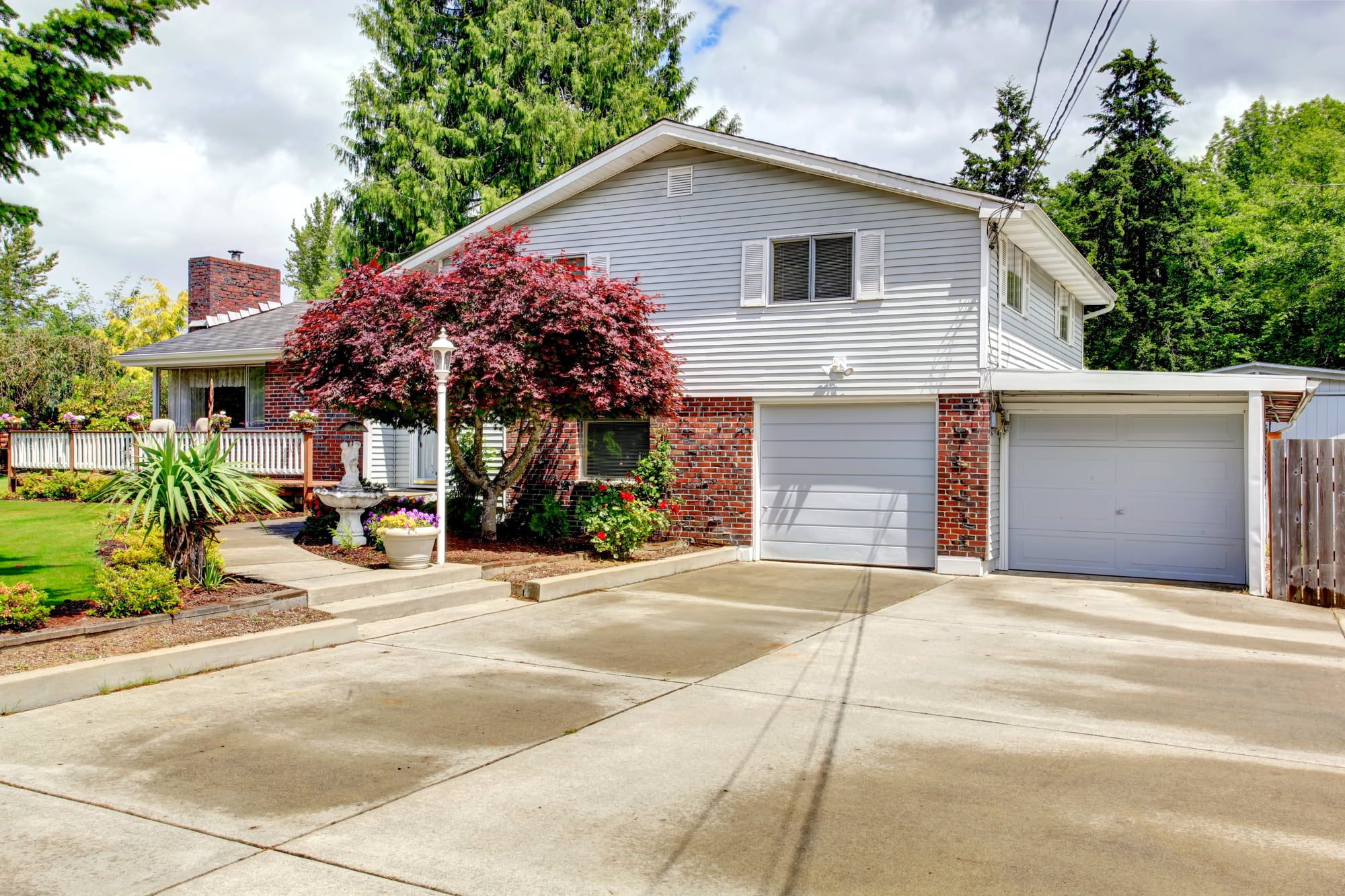Thinking of adding a new concrete driveway? Specifications in Australia apply. The National Construction Code 2019 and Australian Standard AS3600 regulate the construction of concrete structures on properties. This includes the installation of pathways and driveways. Around the home, concrete pathways and driveways not only look tidy but can also serve the purpose of protecting services under the ground. Incorrectly installed driveways will result in cracking, early deterioration and potential property damage.
How thick should a driveway slab be?
While footpaths can be 75mm, driveways deal with substantially more weight and traffic. The recommended thickness of a driveway slab will vary depending on the type of vehicles regularly using the driveway. For household driveways, it is a requirement of the Brisbane City Council that driveway slabs be a minimum of 125mm thick.
For areas outside the Brisbane City Council area, the data sheet published by the Cement Concrete & Aggregates Australia council is a great resource that brings together the National Construction Code and Australian Standards and regulations dealing with concrete driveways. It specifies the minimum required thickness for driveways as 100mm – for use by vehicles less than 3 tonnes (most residential vehicles are between 1,500kg and 2,500kg). However, local government areas may have different requirements as per the Brisbane City Council.
What are concrete driveway thickness requirements?
Brisbane City Council requires a thickness of 125mm for concrete driveways. Driveways of 100mm will usually sustain damage if used by heavy vehicles. Where the driveway is expected to see even infrequent use by vehicles of between 3t and 10t, a minimum of thickness of 150mm is required.
Steel reinforcement or mesh will not increase the load capacity of your driveway – it simply provides crack control. The thickness of the concrete is what determines the load capacity. Some cracking can occur which is purely cosmetic. However, improper construction can lead to crushed concrete and structural failure of the driveway.
Why are there driveway standards in Australia?
If you do not have a driveway at all, it can leave your services vulnerable to damage (depending on where they access your property) which can ultimately lead to property damage. For example, the weight of vehicles driving over water pipes over a prolonged period, particularly when the ground is wet, can lead to burst water pipes and broken storm water drains.
If you have gone to the expense of installing a driveway, you want it to last. Installing a driveway in accordance with the Australian Standards will ensure its longevity. Driveway thickness, expansion joints, and sub-base preparation can all impact the integrity of your driveway. Correct ground preparation, form-work preparation and concrete mix are all part of the Australian Standards. A driveway that has been constructed on the cheap and installed at the incorrect thickness will eventually fail under the weight of car traffic – a costly exercise to replace.
How do I know if my driveway does not meet standard?
Aside from meeting the requirements of the National Construction Code and Australian Standards, Brisbane City Council has their own set of technical standards that must be met.
As part of the external and allotment inspections, your building and pest inspector will inspect the driveway. Does your driveway direct water away from the house? Has the driveway got visible structural cracking not along the 10mm expansion joints? Is the thickness at the edges of the driveway at least 125mm? Are there signs of rust coming through the concrete caused by incorrect installation of steel reinforcement? A thorough pre-purchase building inspection will report back on any defects.
To assess a property for concrete driveways and much more, contact Action Property Inspections TODAY!

